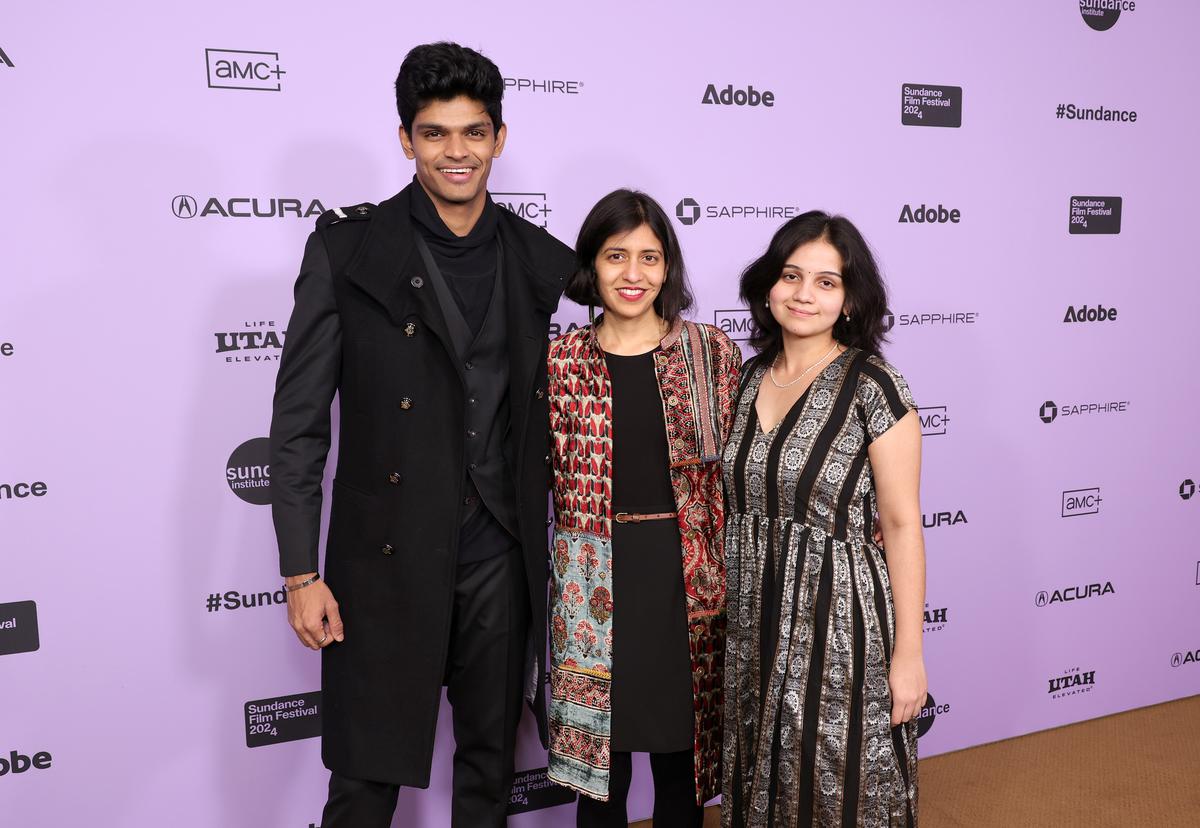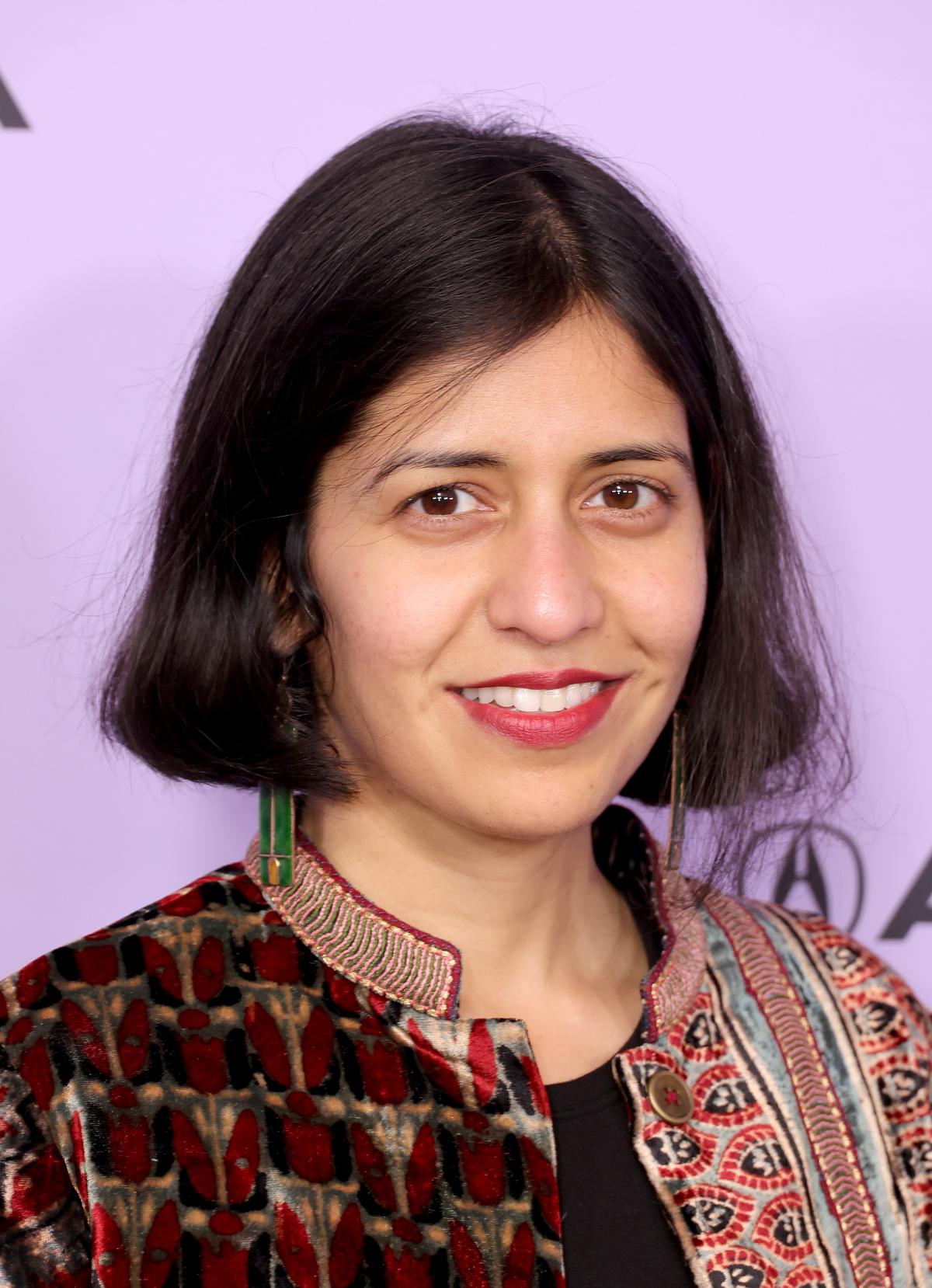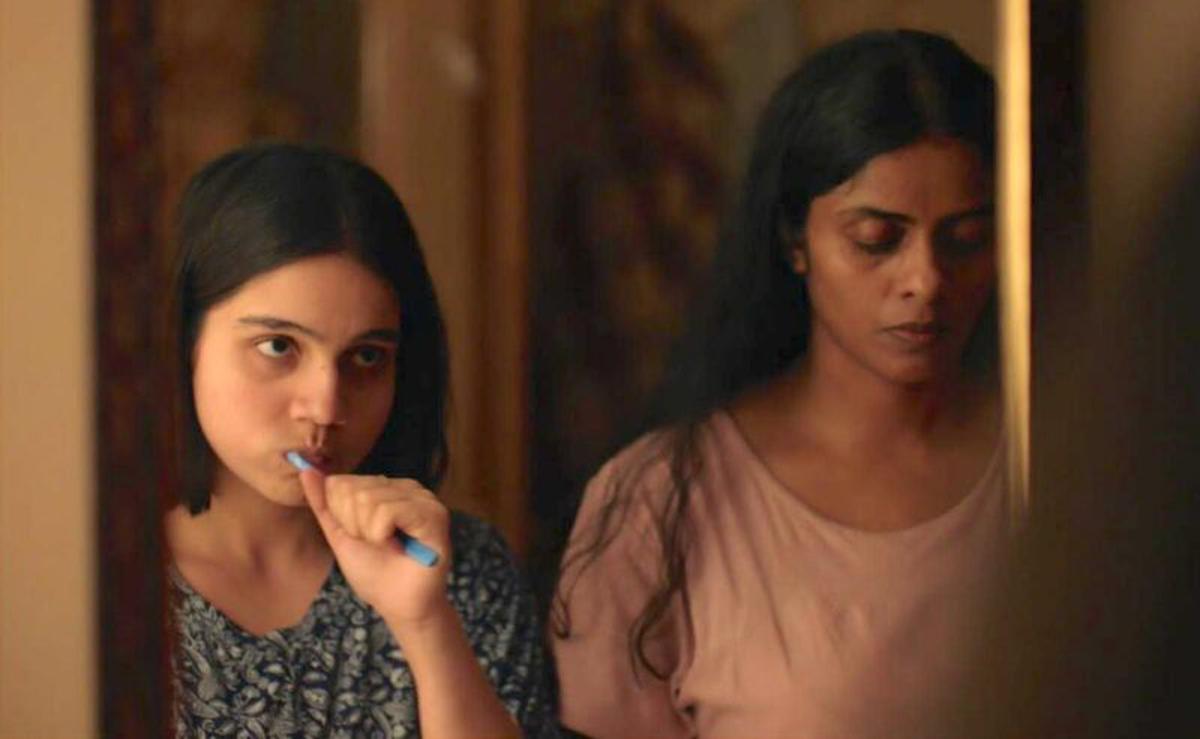Actors Preeti Panigrahi and Kani Kusruti in a still from Shuchi Talati’s ‘Girls Will Be Girls’.
Shuchi Talati, writer-director of Girls Will Be Girls, which debuted at the ongoing Sundance Film Festival, wanted to create a movie set where girls could be girls. So she involved a mostly female crew to shoot the film. “In spaces which are more ‘male’, women wear armour. But when we don’t have to fight for respect or be more masculine to be taken seriously, it opens up mental space and we can get more done,” says Talati. “And because the film is about a young girl’s sexuality, for me it was very important to build a safe space where the cast could be vulnerable.”
Girls Will Be Girls was among the first titles picked to compete in the festival’s world dramatic competition, a Sundance programmer informed viewers at the film’s premiere. It is a delicately spun duel for attention between teen girl Mira (Preeti Panigrahi) and her young mother Anila (Kani Kusruti), after Mira befriends Sri (Kesav Binoy Kiron), an attractive new classmate at her boarding school.

Filmmaker Shuchi Talati (centre), flanked by her actors Kesav Binoy Kiron (left) and Preeti Panigrahi, at the 2024 Sundance Film Festival in Park City, Utah, U.S.
| Photo Credit:
Getty Images
U.S.-based Taiwanese filmmaker and photographer Jih-E Peng handled the cinematography, Avyakta Kapur (Jee Karda, Prime Video) led production design, while Amrita David came on board as editor. The film was produced by women too — Claire Chassagne from France and Richa Chadha in India, who attended college with Talati in Mumbai.
Intimacy on screen
New York resident Talati’s last film — a short called A Period Piece, in which a couple contends with blood stains on the couch after a night of intimacy — was also shot by a mostly female crew. “It was special to try and recreate that in India. Film sets are very ‘male’ everywhere but that is a little bit more true in India.” After six years in the making, several funding applications, and a stint at the Berlinale Talents Script Station programme later, Girls Will Be Girls was introduced at the grand Egyptian Theatre in Park City, Utah, where an international audience gasped and giggled along with the plot’s subtle twists. “We were surprised by how audibly people were reacting,” cast member Kiron noted after the screening. “Because ours is actually a quiet film.”

“Teenage sexuality is not something we really see in Indian cinema… for me it was important that brown, Indian people, people who look like me, are seen as sexual beings.”Shuchi Talati
The filmmaker first began writing a story of sexual awakening set in a strict Indian school in 2018. That milieu had caught Talati’s imagination ever since she spent a night at a boarding school where the bunk beds were covered in lovey-dovey etchings. “There were all these little messages by all the girls who had slept in them over the years, recording their crushes,” she says. Talati was also fascinated by the boarding schools described in Enid Blyton’s St. Clare’s and Malory Towers, as well as her own school in Vadodara, “where they policed everyone but especially the girls”.
As an adult looking back, the writer in Talati was struck by how much of her girlhood was governed by society. “When you are a student, you are so steeped in the culture, so while there is the thrill of exploring your sexuality, there is also shame and judgement, so you want to keep the rebellion a secret,” she says. “Sometimes you don’t even tell your best friend that you kissed your boyfriend.”
The film’s protagonist Mira is one such girl who, as a straight A student and the first female head prefect of her school, must walk the tightrope between upholding the “age-old Indian culture” and asserting her budding sexual agency.
A voice for mothers

A still from Shuchi Talati’s ‘Girls Will Be Girls’.
Over the course of scripting, Talati decided to marry the plot with another story she had been writing, about a fraught mother-daughter relationship. Young mothers often have to stifle their own unmet needs while raising bold and ambitious daughters. In Girls Will Be Girls, Anila has a mixed reaction to Mira’s new friendship with Sri, being gamely permissive sometimes and resentfully prohibitive on other occasions.
The director interviewed mothers, including her own, to form the character. “It was interesting going back and talking to mothers — ‘what were those years of marriage like?’, ‘did you want to have a career?’ My mom was progressive and modern, maybe the first to wear jeans (in the family), it was interesting to see what kind of judgement she faced for that.”
Girls Will Be Girls offers a welcome break from stereotypes. For instance, the Indian cinema trope of “the asexual mother” is shattered, as Anila displays a sense of energy and desire. “Nobody asks mothers these questions, but that doesn’t mean there is not all this desire and heartbreak there.” In another departure from the norm, the model girl on screen gets to enjoy intimacy too.
“Teenage sexuality is not something we really see in Indian cinema. The vamps are allowed access to sexuality, the good women are not, and women on screen are often punished for exploring that part of themselves,” the director said at the film’s premiere. “So for me it was important that brown, Indian people, people who look like me, are seen as sexual beings.”
The feature writer is based in Mumbai.